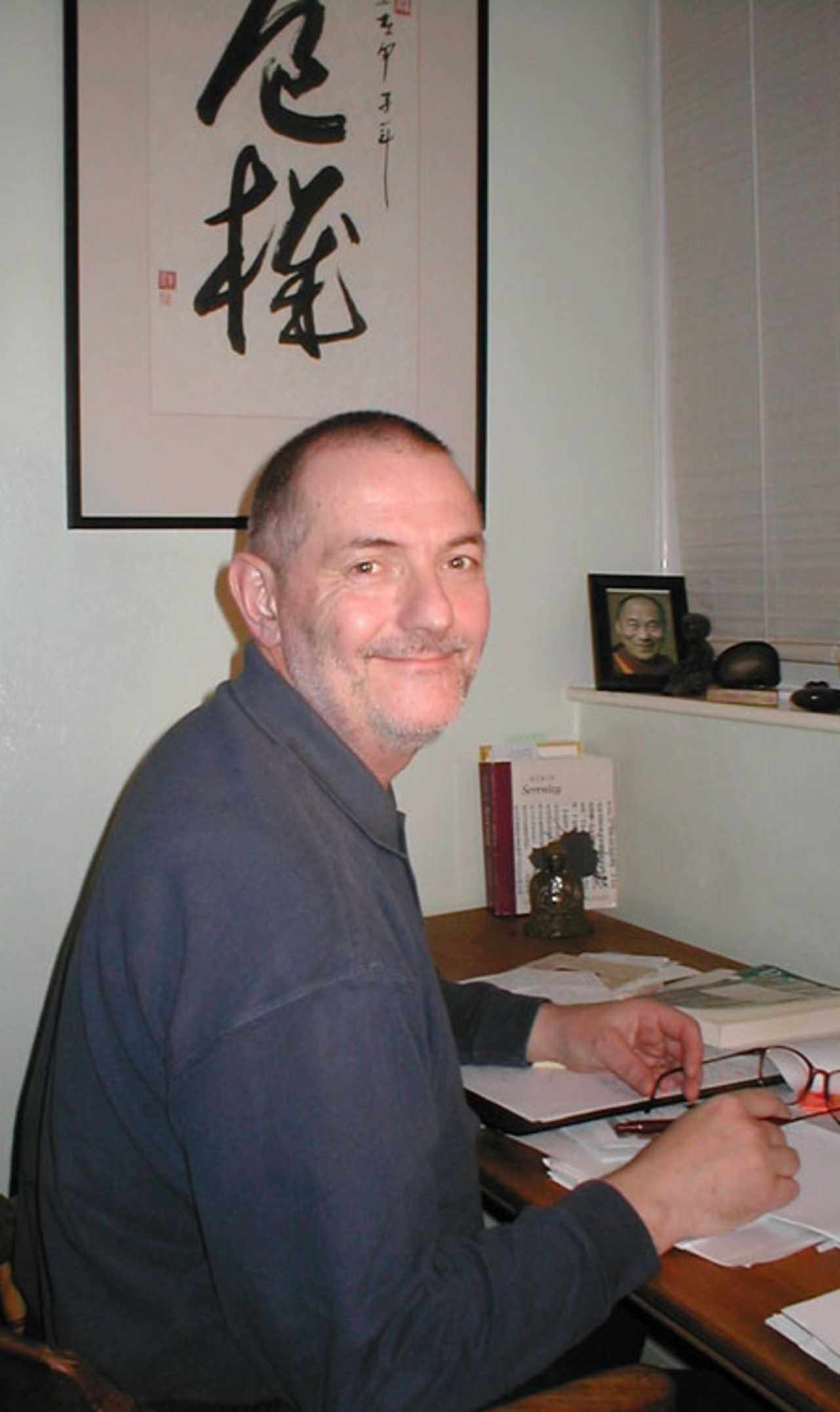Sacred Hoops by Phil Jackson
I've been throwing basketballs for almost as long as I have been sitting. At about the same time that I began to sit regularly I started attending a Keep Fit evening class where basketball is the staple diet. So most Thursday evenings will see me along with a group of similarly middle aged and slightly overweight (?) men running up and down a gym trying to throw a ball into a suspended basket.
So what has this to do with Zen?
Firstly, most people understand the idea of the 'zen moment' when some seemingly complex series of actions acquire a unity that is beyond thought and intention. I have experienced some of these moments in several ways and the most usual involves throwing a basketball at a basket and it going in without touching the ring. Hand, eye, ball, air, arch, basket; - hold a gesture of oneness. Then when a ball goes in a basket free of the ring a different sound is produced in the mesh of the basket - a sort of ttccssshhh. That sound defines the moment, for it somehow always happens in silence; a silence instantly broken by my triumphant "Yeeesssss". When opposites arise the Buddha mind is lost (but 2 points are scored).
And this book? Well, Phil Jackson is the coach of a professional basketball team known as the Chicago Bulls and he is a Zen practitioner. In fact he bases his coaching method on Zen principles, including the practice of meditation. In the book Jackson tells his story of an upbringing in an overbearing Christian home, the disillusionment with its spirituality and the finding of a freedom in Zen practice (Jackson now calls himself a Zen Christian). Following a career as a player Jackson applied his understanding to coaching basketball teams. You can't expect a team to perform in a way that is out of tune with its natural abilities, so empowering individuals - even superstars - to mindfully acknowledge their true abilities and accept what they can and can't change moves any team toward a greater cohesion. Focusing on the awareness of the moment, instilling the notions of selflessness in action and the value of compassion towards fellow players are some of the teachings that Jackson provided for his players.
Somehow I never associated the competitive world of a professional sport with Zen practice but clearing the mind and opening the heart is just as relevant there as anywhere else. In dealing with the high pressure situation of highly paid athletes constantly under media scrutiny Jackson, via his practice has been able to reflect on his own actions, look into his essential nature and find solutions to all sorts of problems - the Tao of Authority leads him.
Zen is life, so why not let the eightfold path lead you to a method of coaching basketball? Even if 'right action means calling it quits' sometimes and it involves losing. As Jackson says, "I used to believe that the day I could accept defeat was the day I would have to give up my job. But losing is as integral a part of the dance as winning. Buddhism teaches us that by accepting death, you discover life. Similarly, only by acknowledging the possibility of defeat can you fully experience the joy of competition. Our culture would have us believe that being able to accept loss is tantamount to setting yourself up to lose. But not everyone can win all the time; obsessing about winning adds an unnecessary layer of pressure that constricts body and spirit and, ultimately, robs you of the freedom to do your best."
I've been greatly impressed by Jackson and his approach. As I read the book I kept thinking that it takes great courage to be a practitioner. I don't quite know what that means as it probably is a koan for me. But whatever it is Jackson displays that courage. And a recommendation? Don't read this book unless you are interested in sport for primarily it is the story of how a top basketball team became champions three times coached by a man with a clear and interesting strategy. But if you are interested in basketball and letting your practice guide you, well, when you meet the Buddha on court - throw him a pass!
Book Details
Hyperion, New York, 1995
(obtainable from Sporting Pages, London, or from Amazon.co.uk)
Reviewed by Eddy 'Slam-dunk' Street
- Publication date:
- Modified date:
- Categories: 1998 Book Reviews Eddy Street
-
 Western Chan Fellowship CIO
Western Chan Fellowship CIO - Link to this page

©Western Chan Fellowship CIO 1997-2025. May not be quoted for commercial purposes. Anyone wishing to quote for non-commercial purposes may seek permission from the WCF Secretary.
The articles on this website have been submitted by various authors and the views expressed do not necessarily represent the views of the Western Chan Fellowship.
Permalink: https://w-c-f.org/Q372-270
